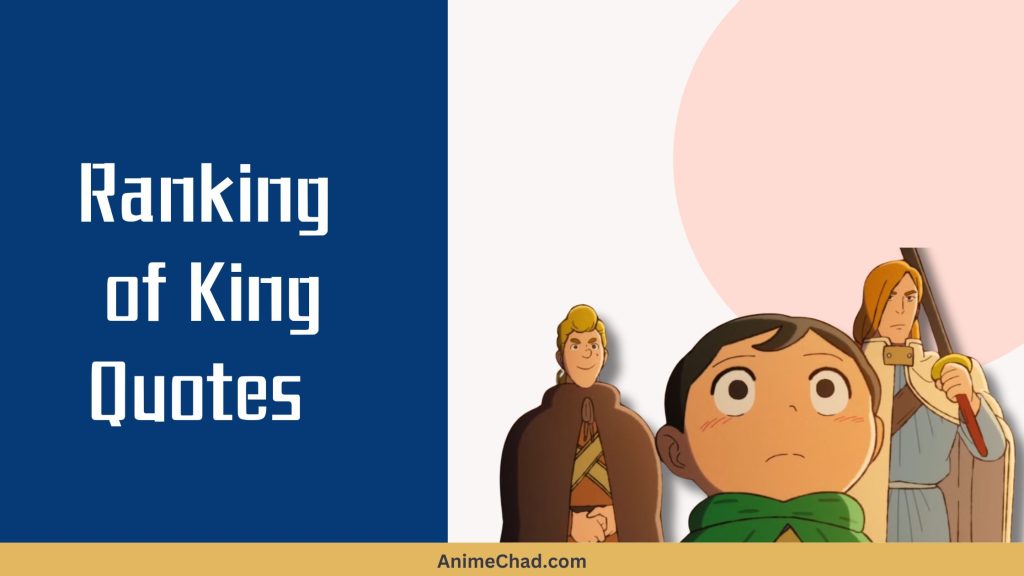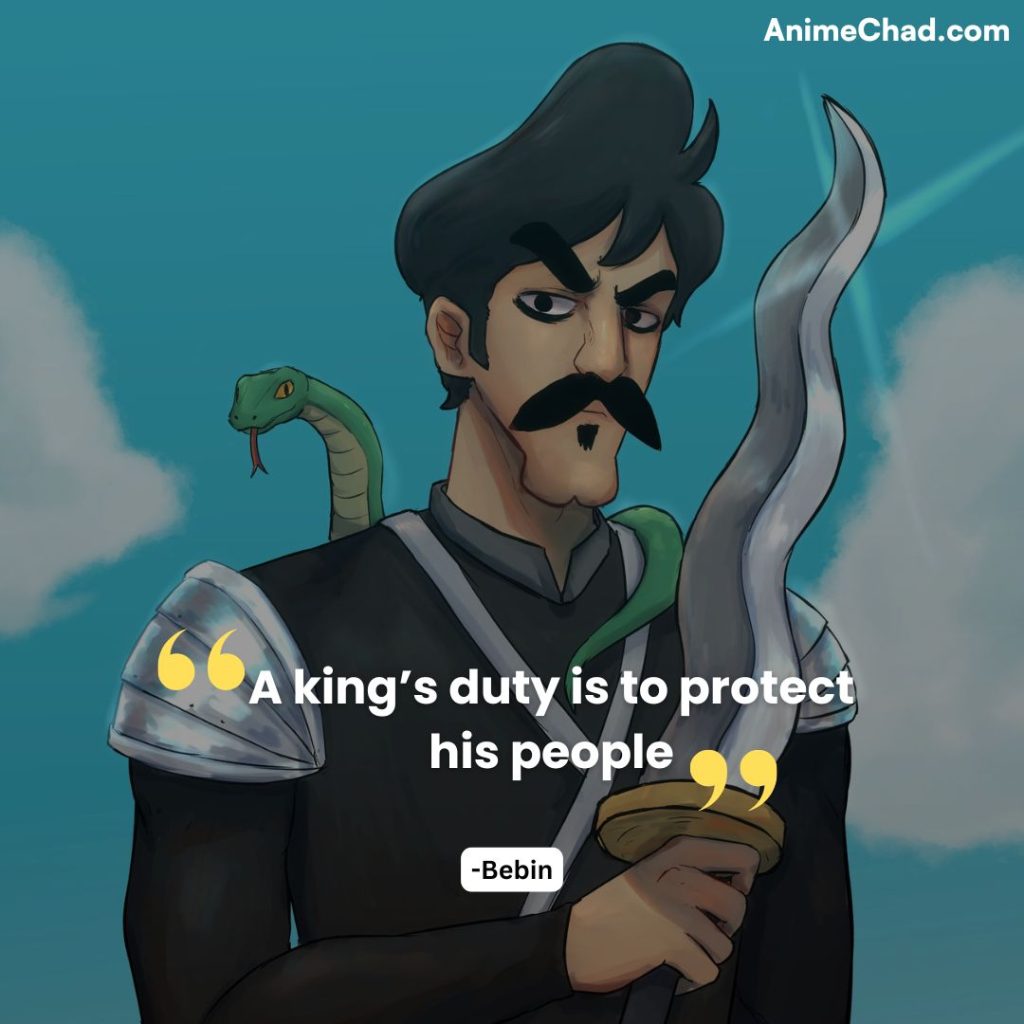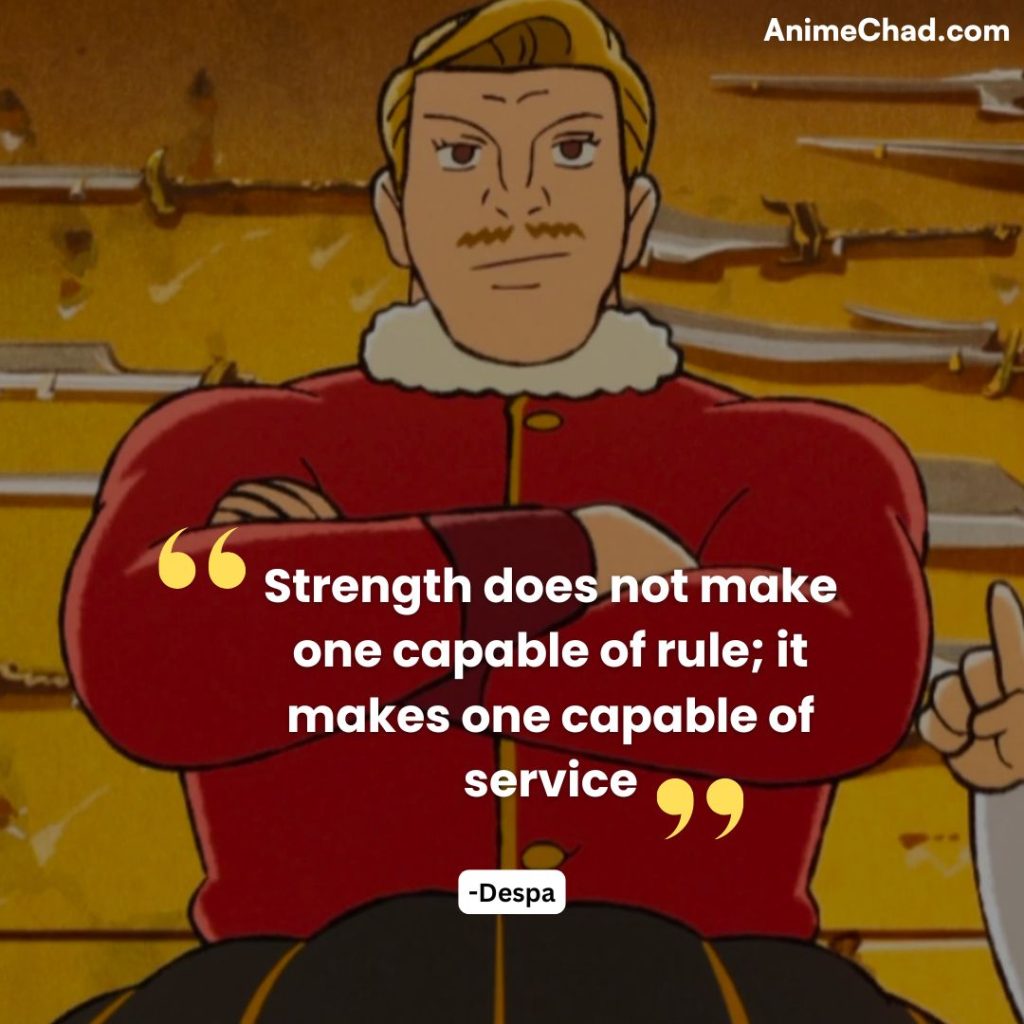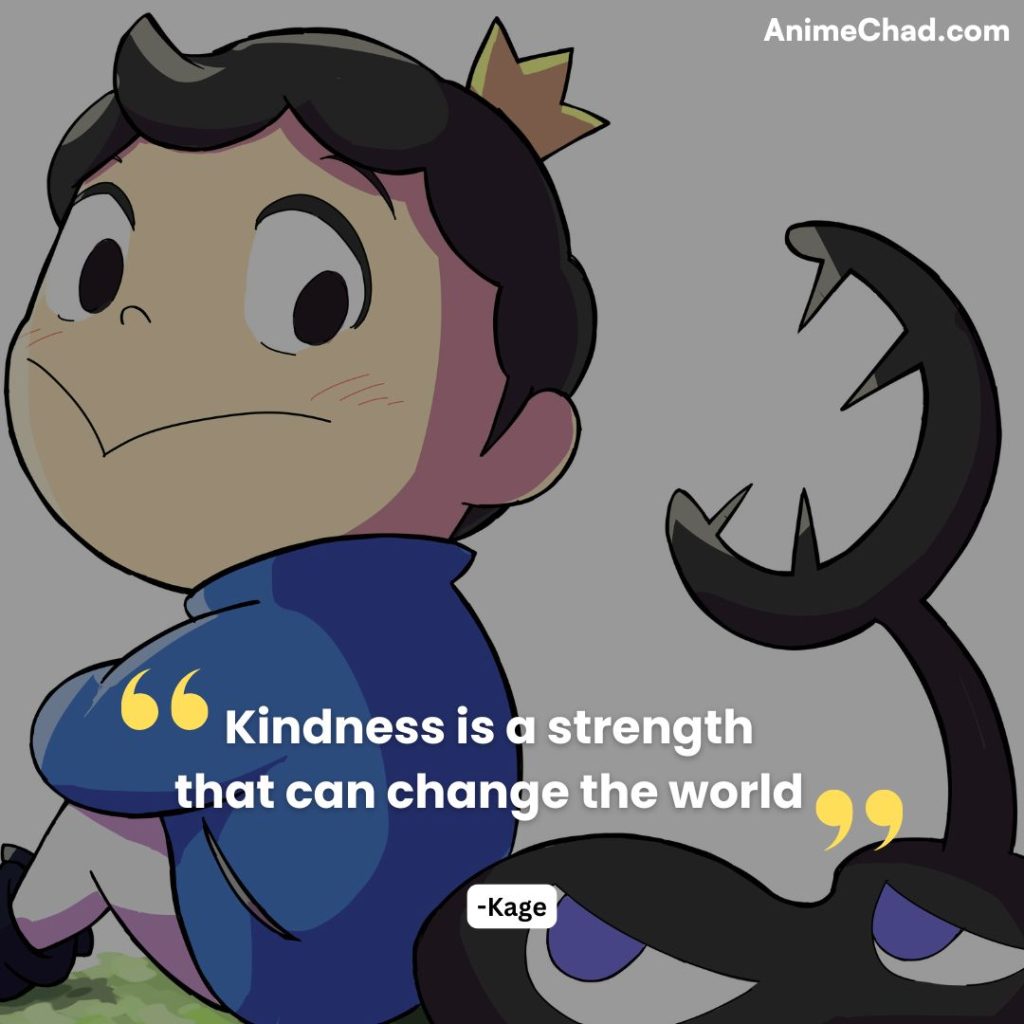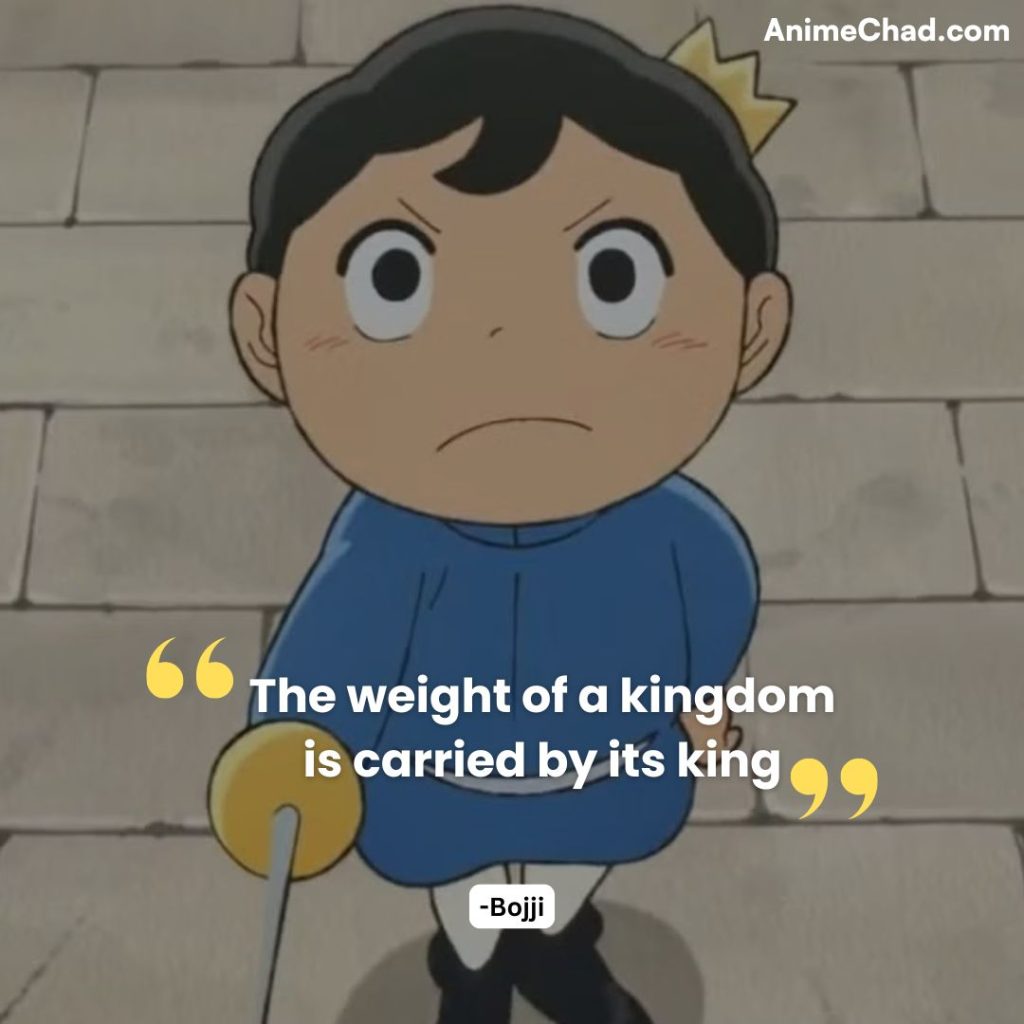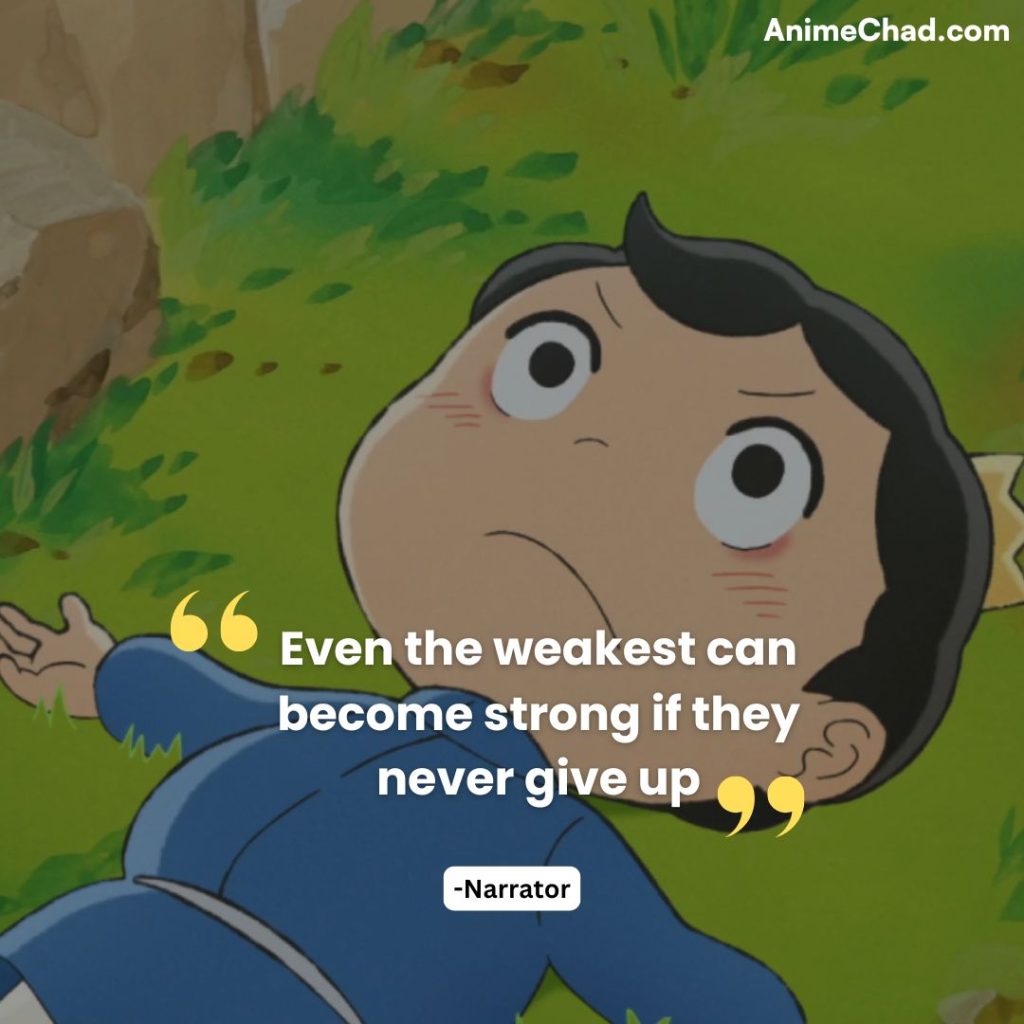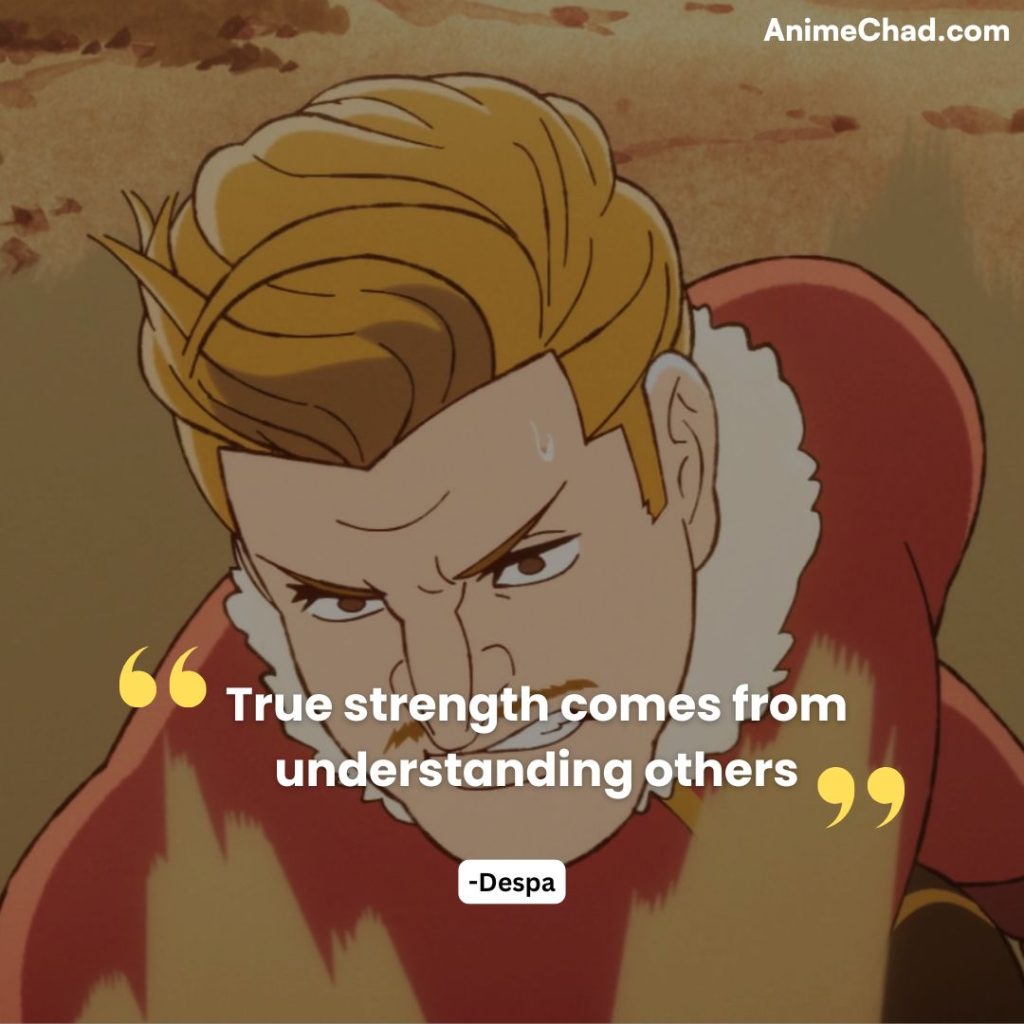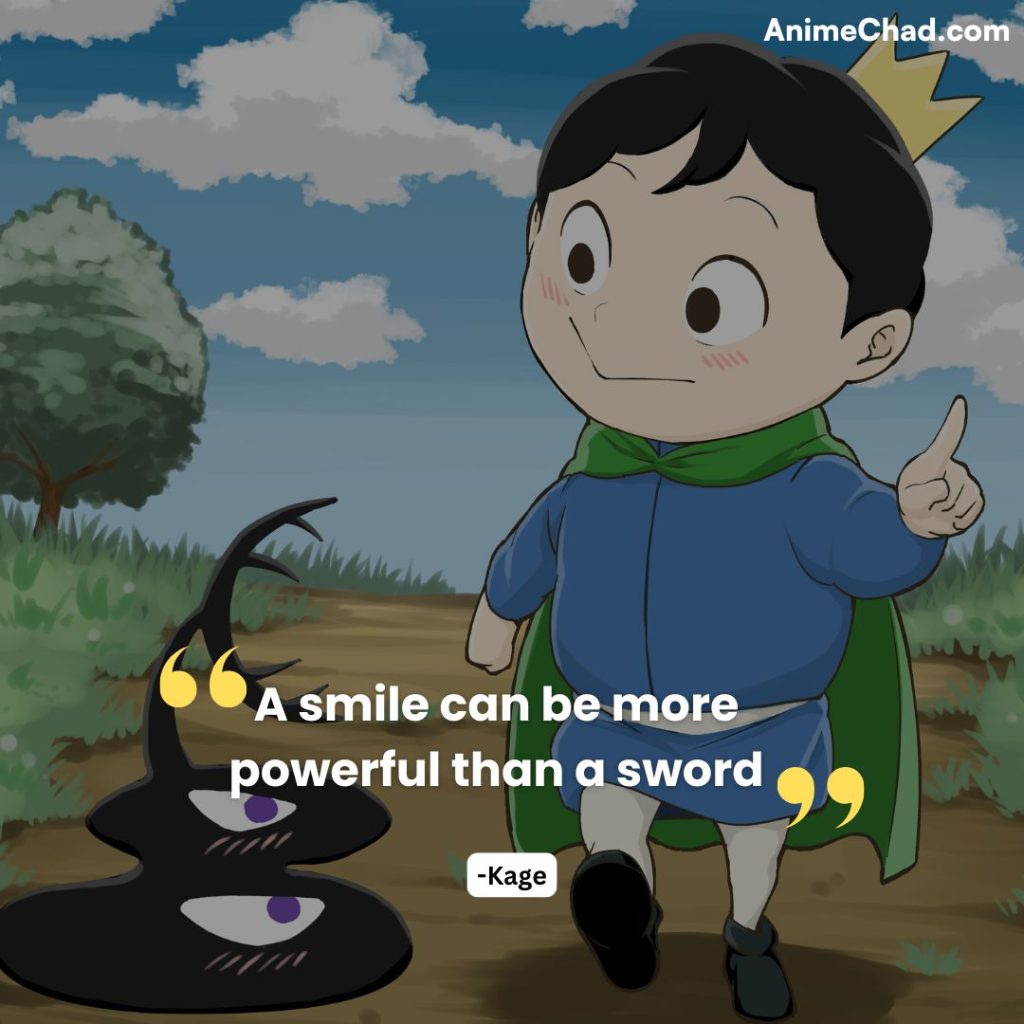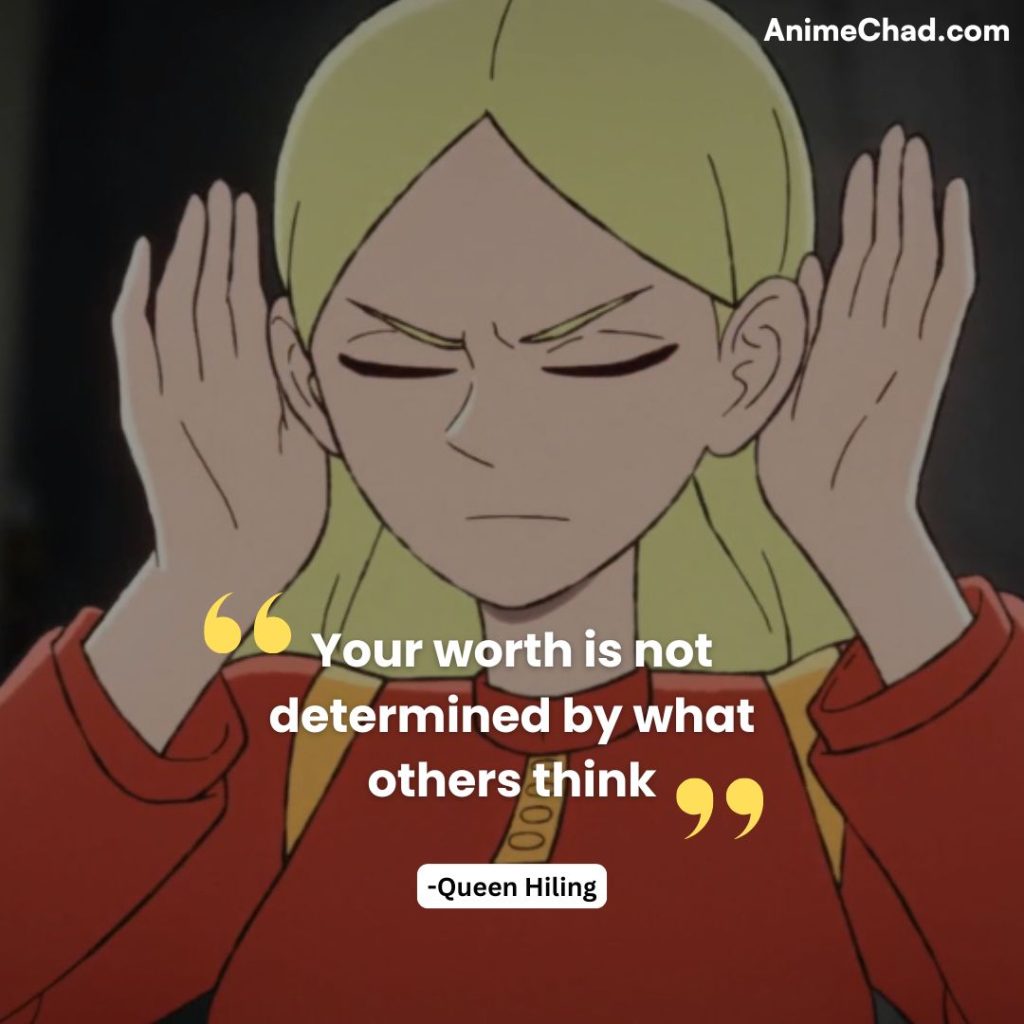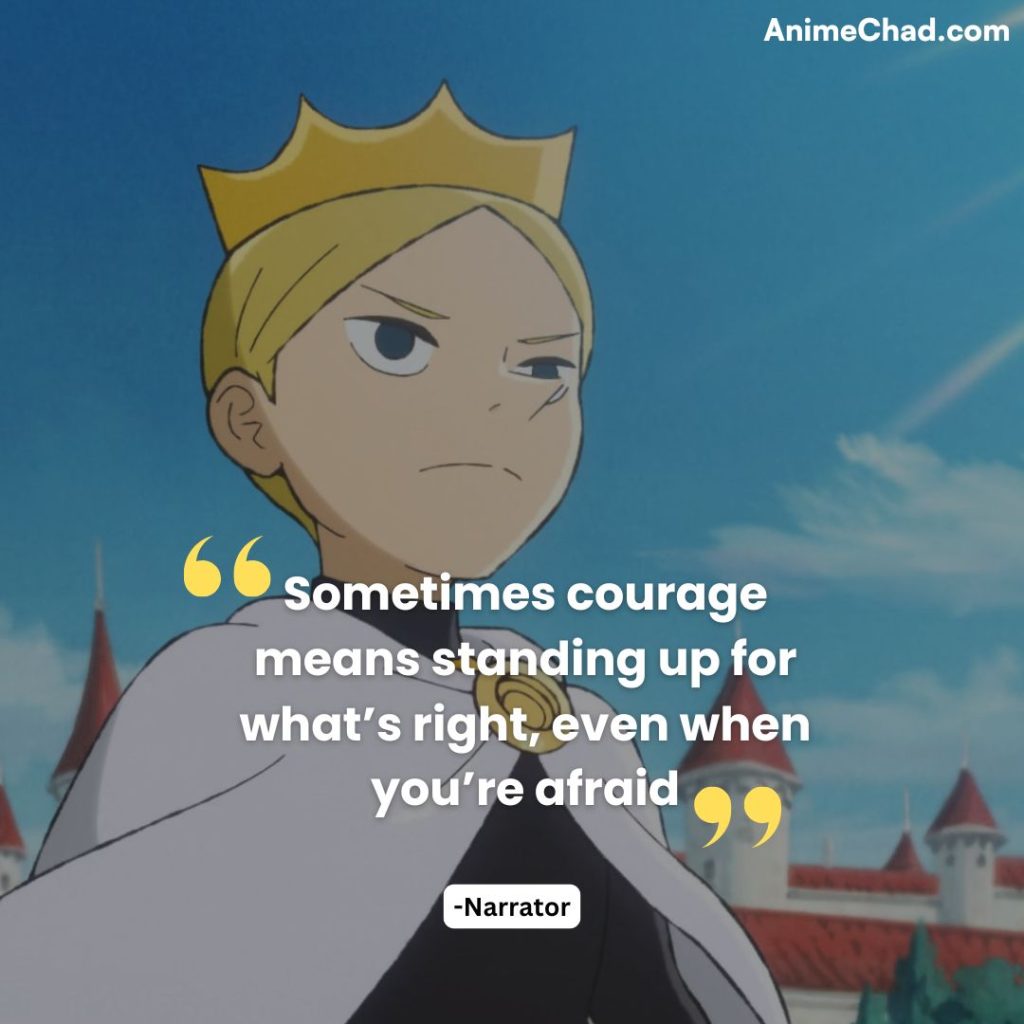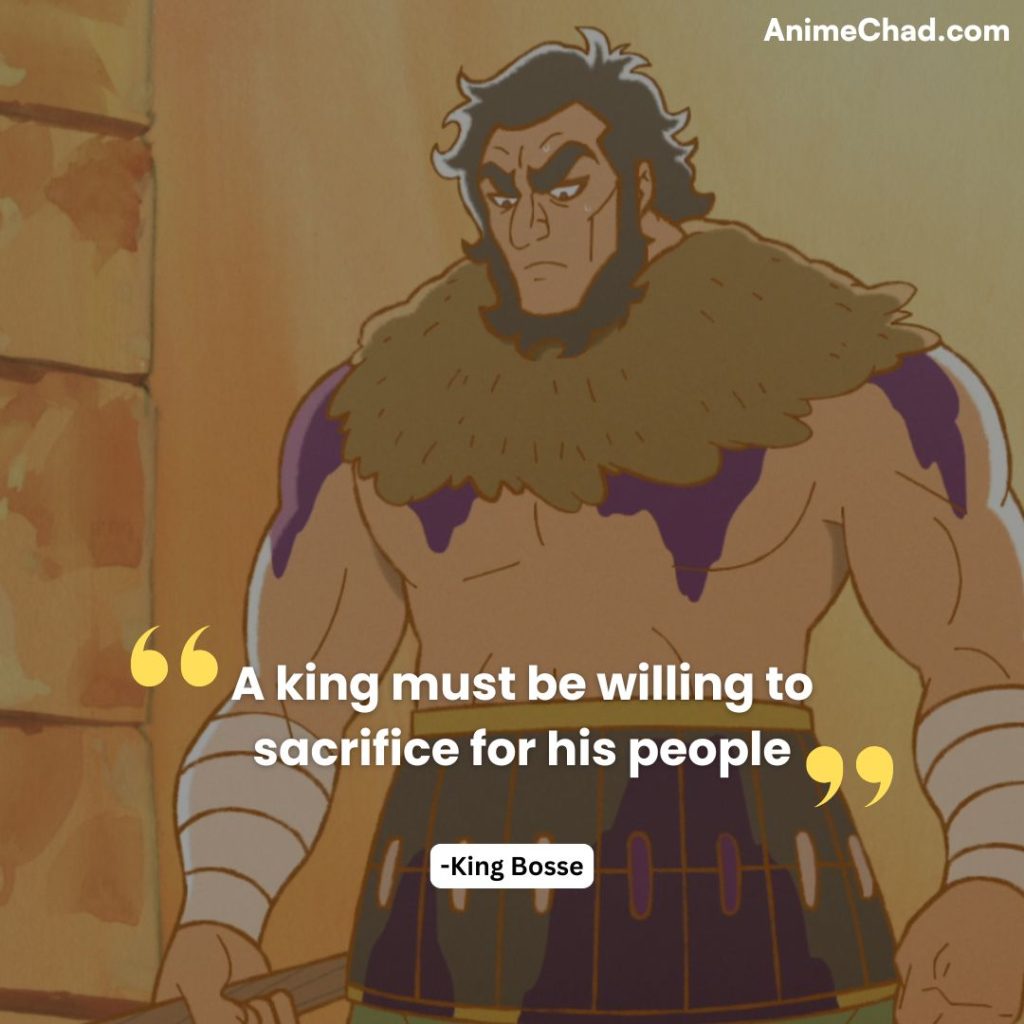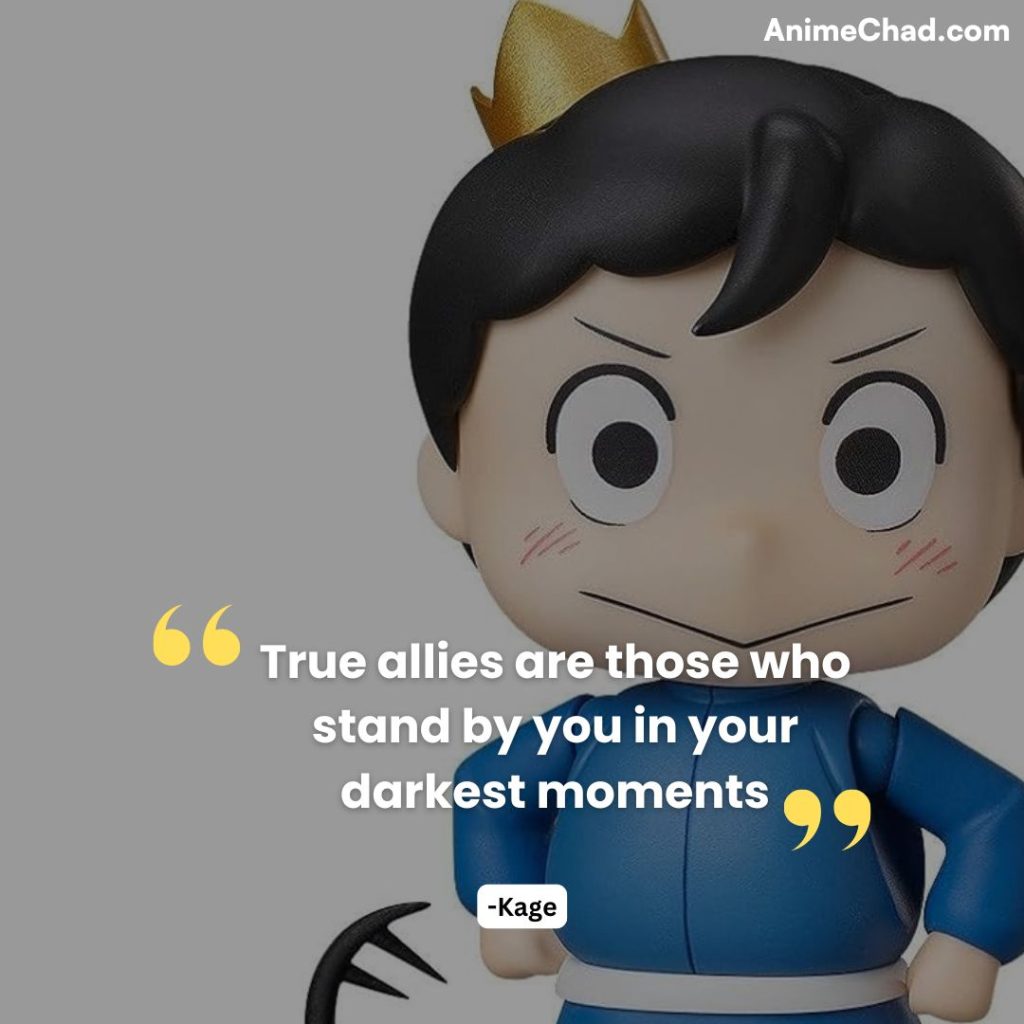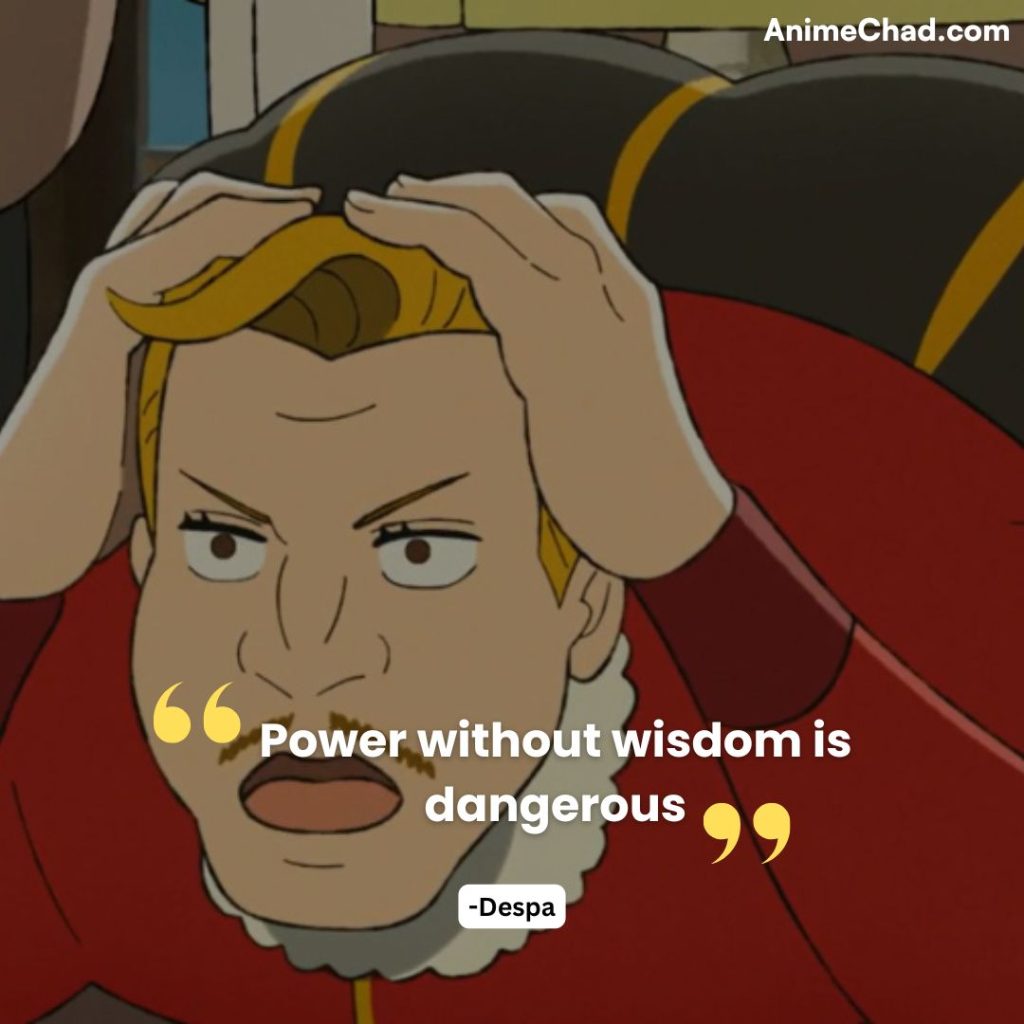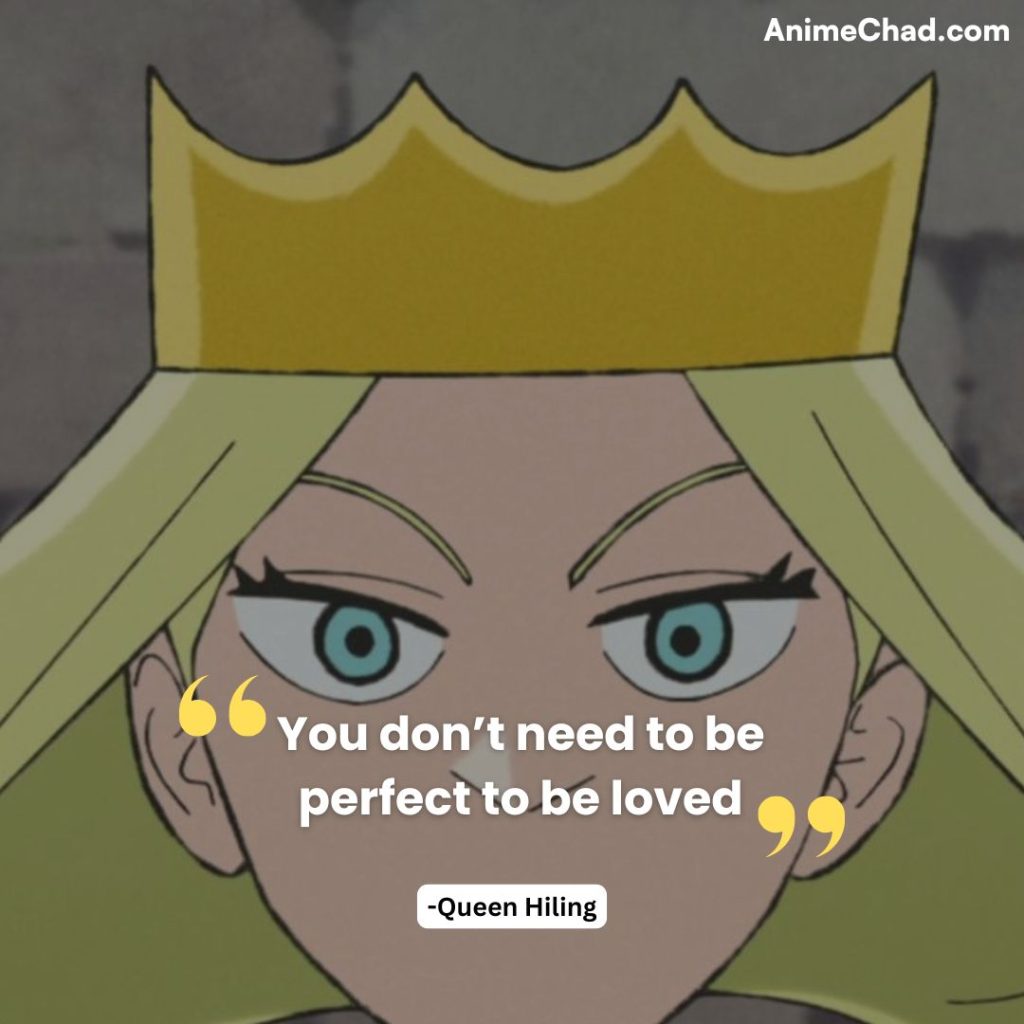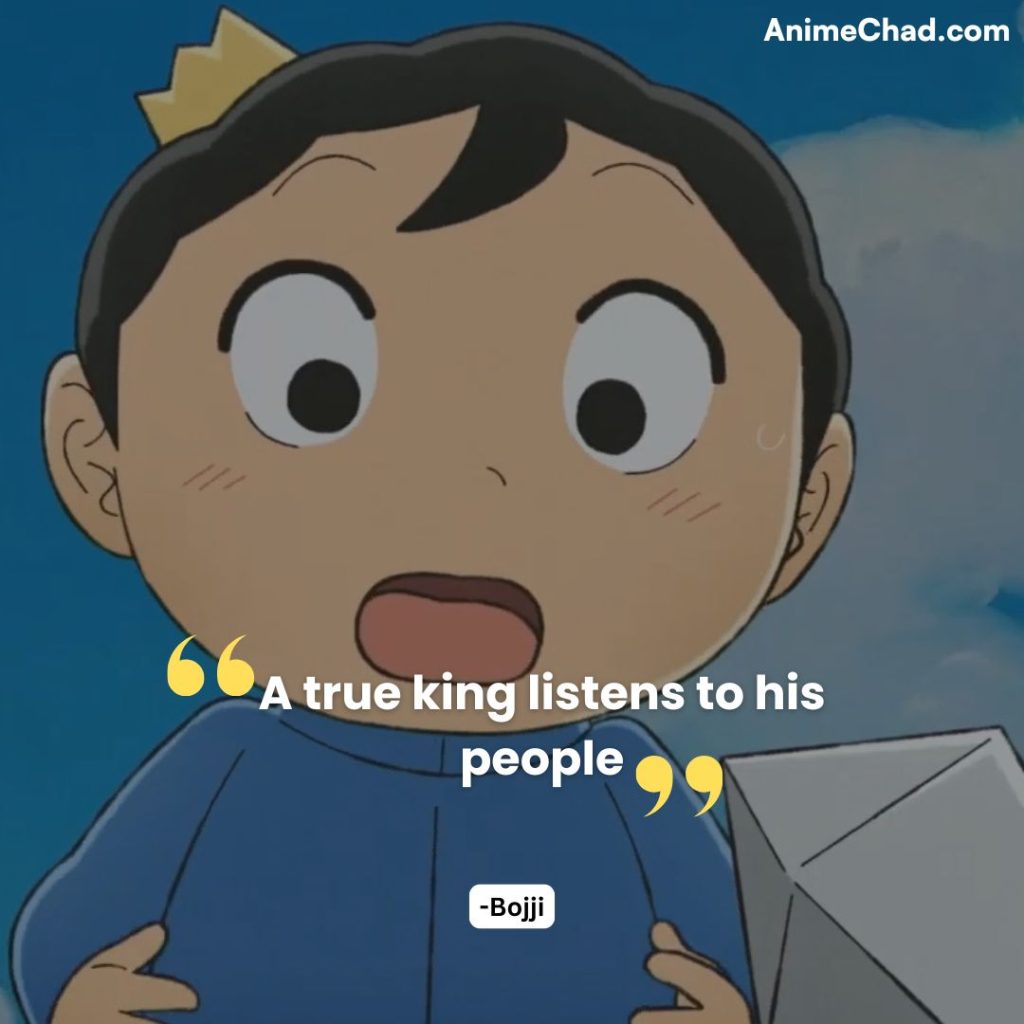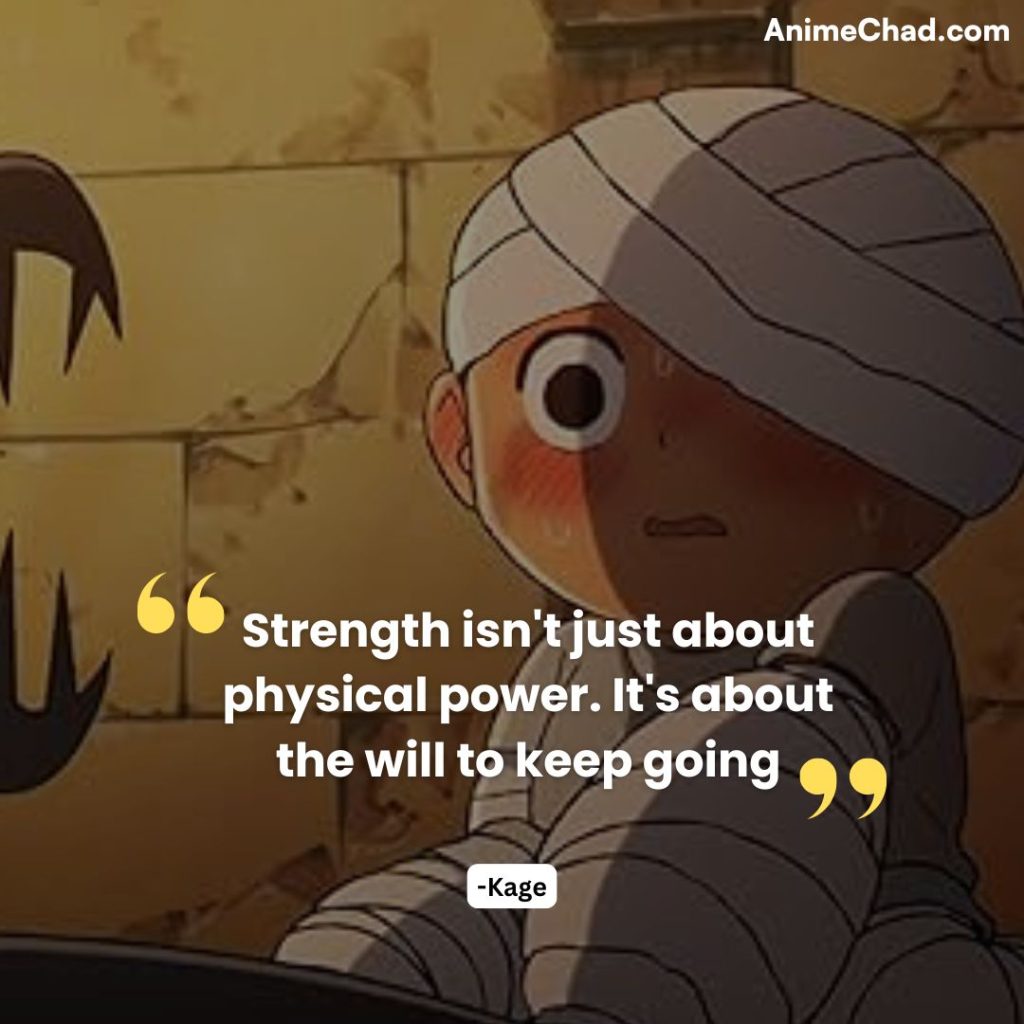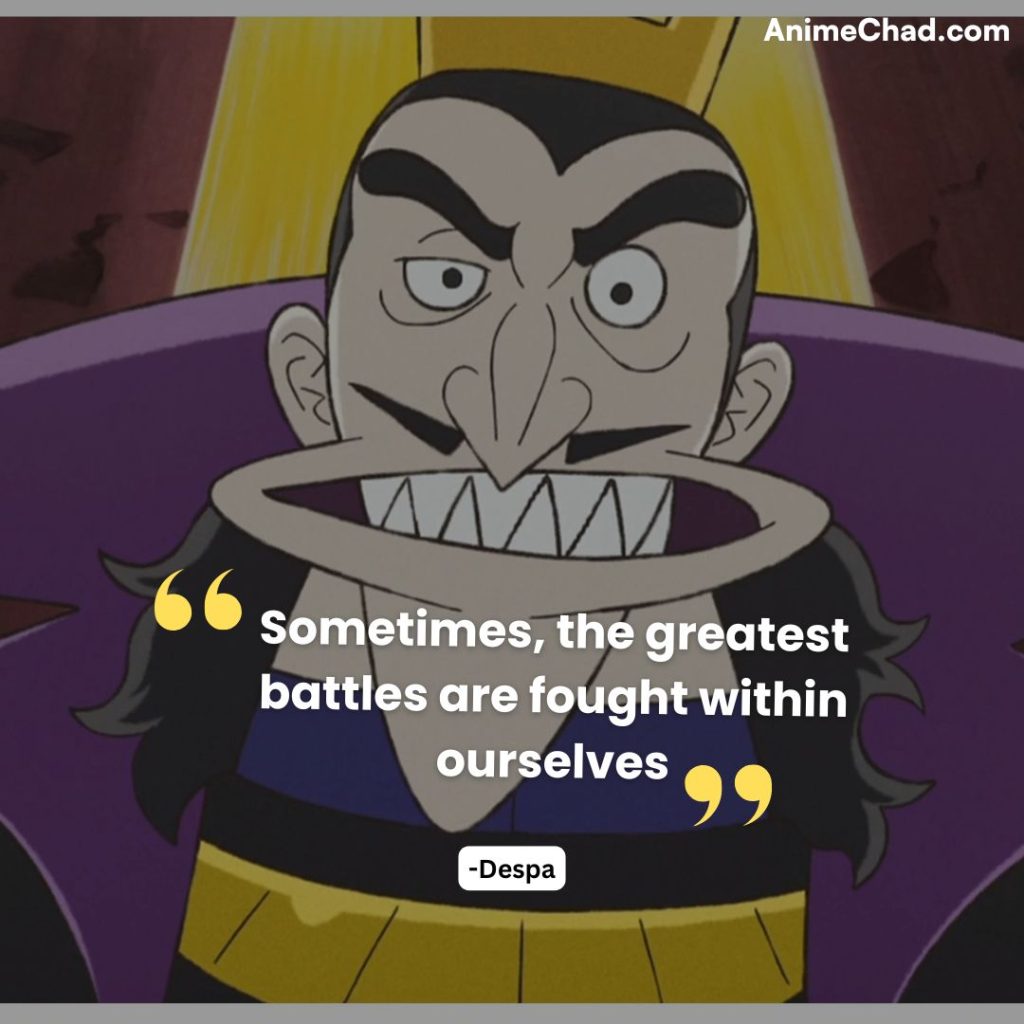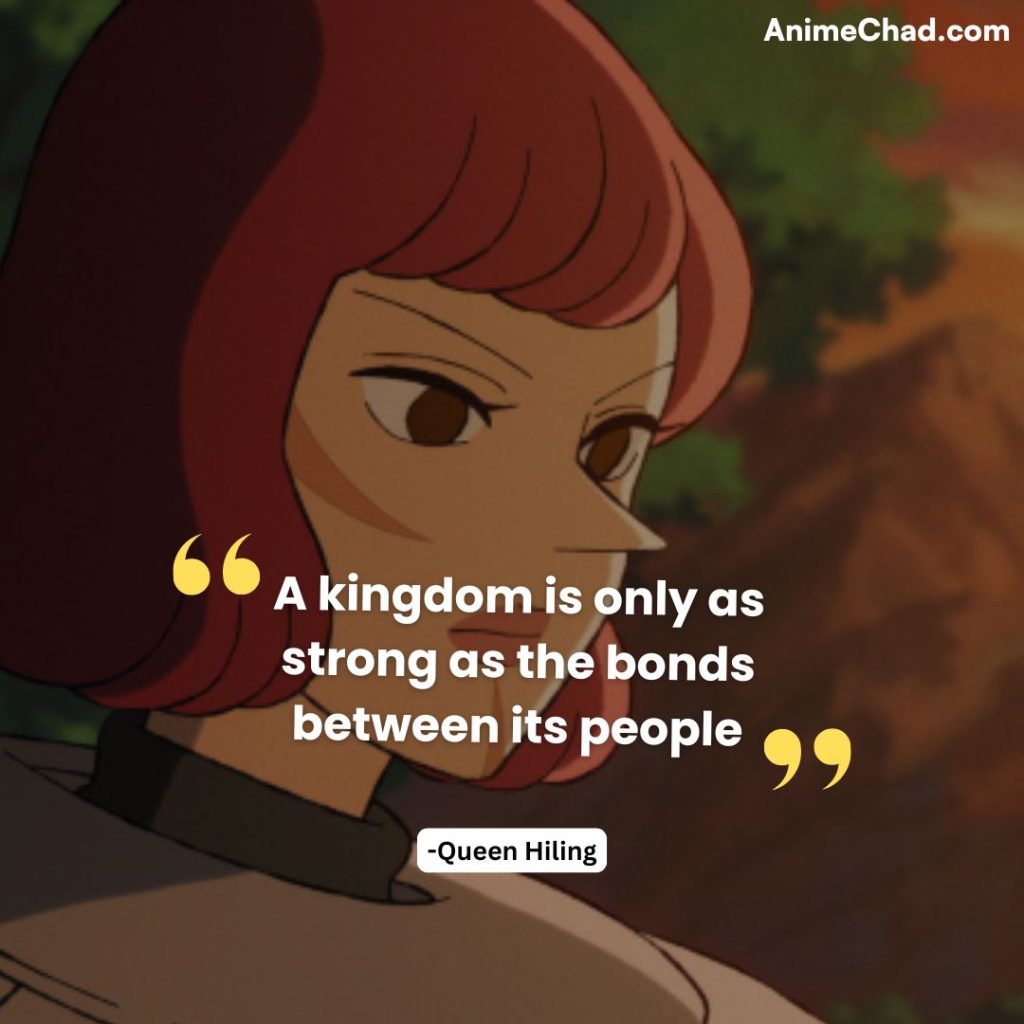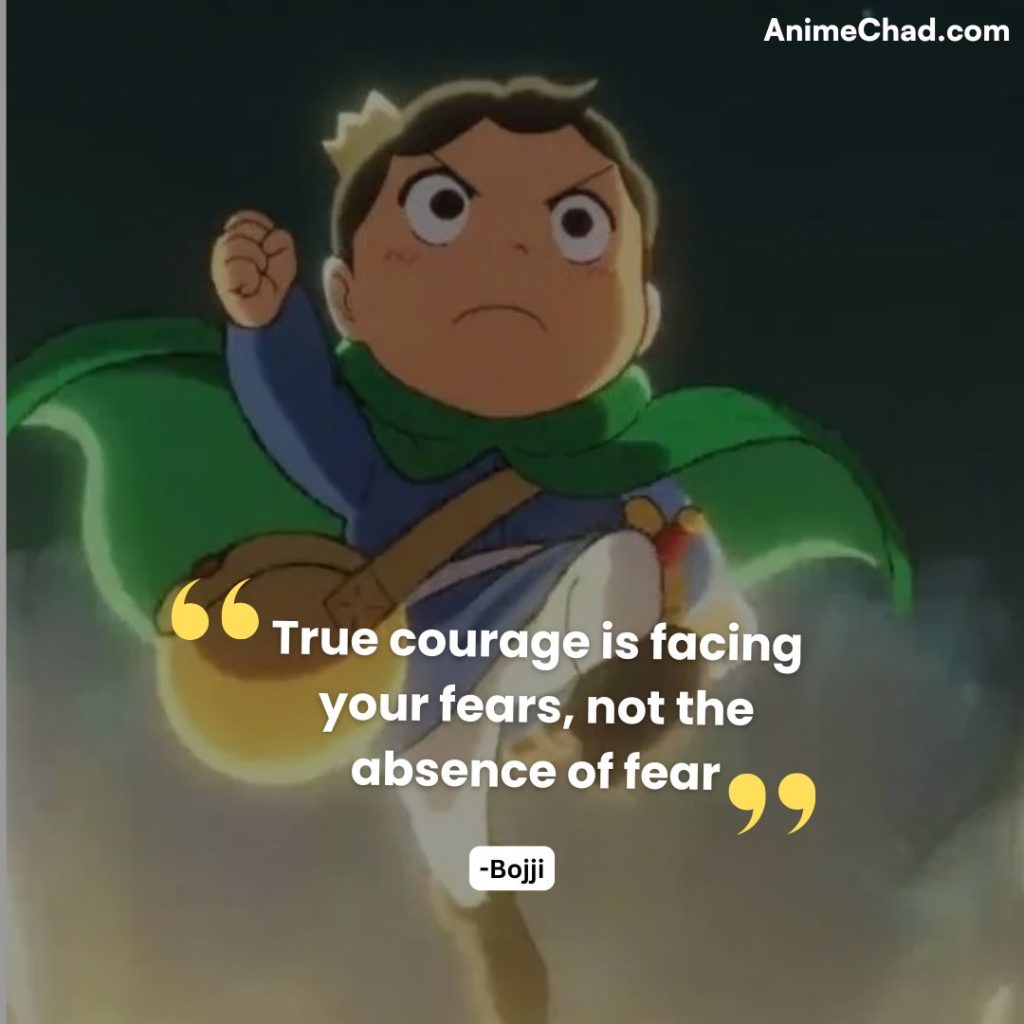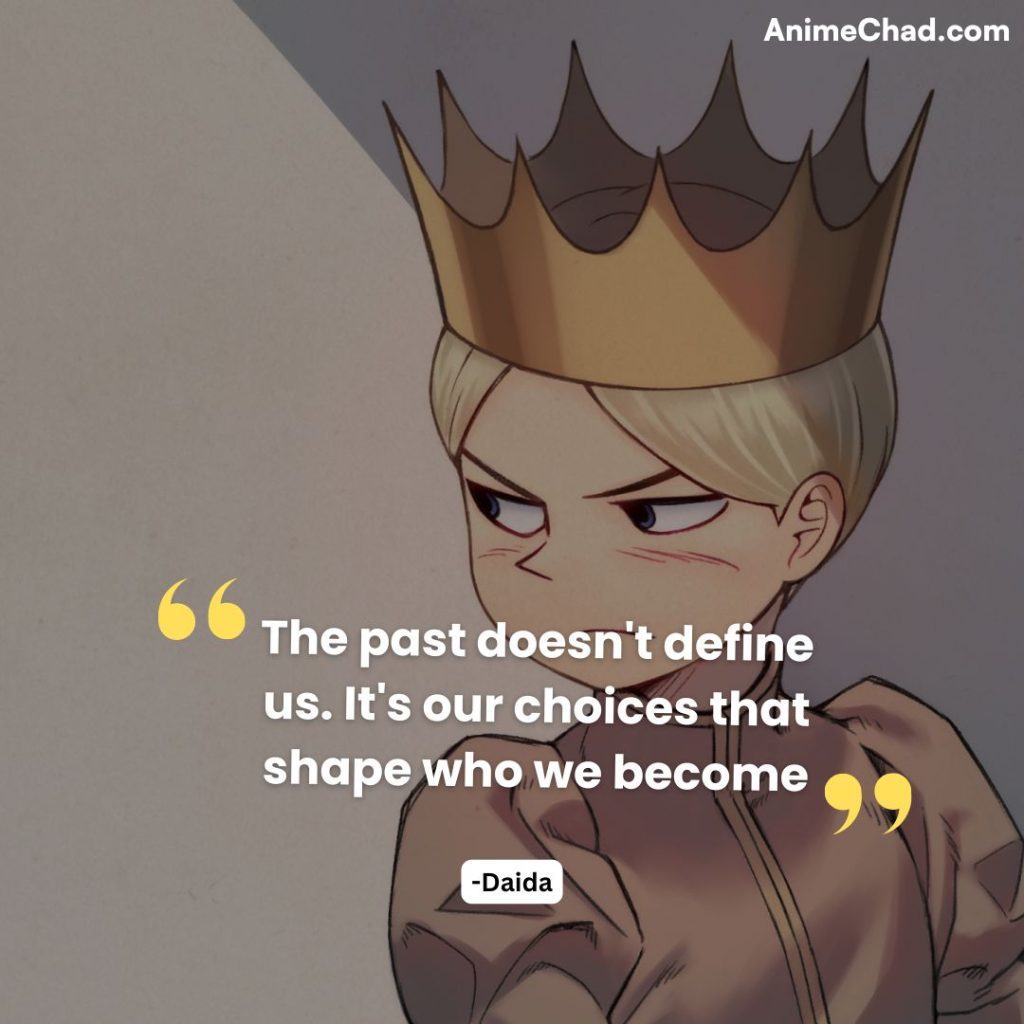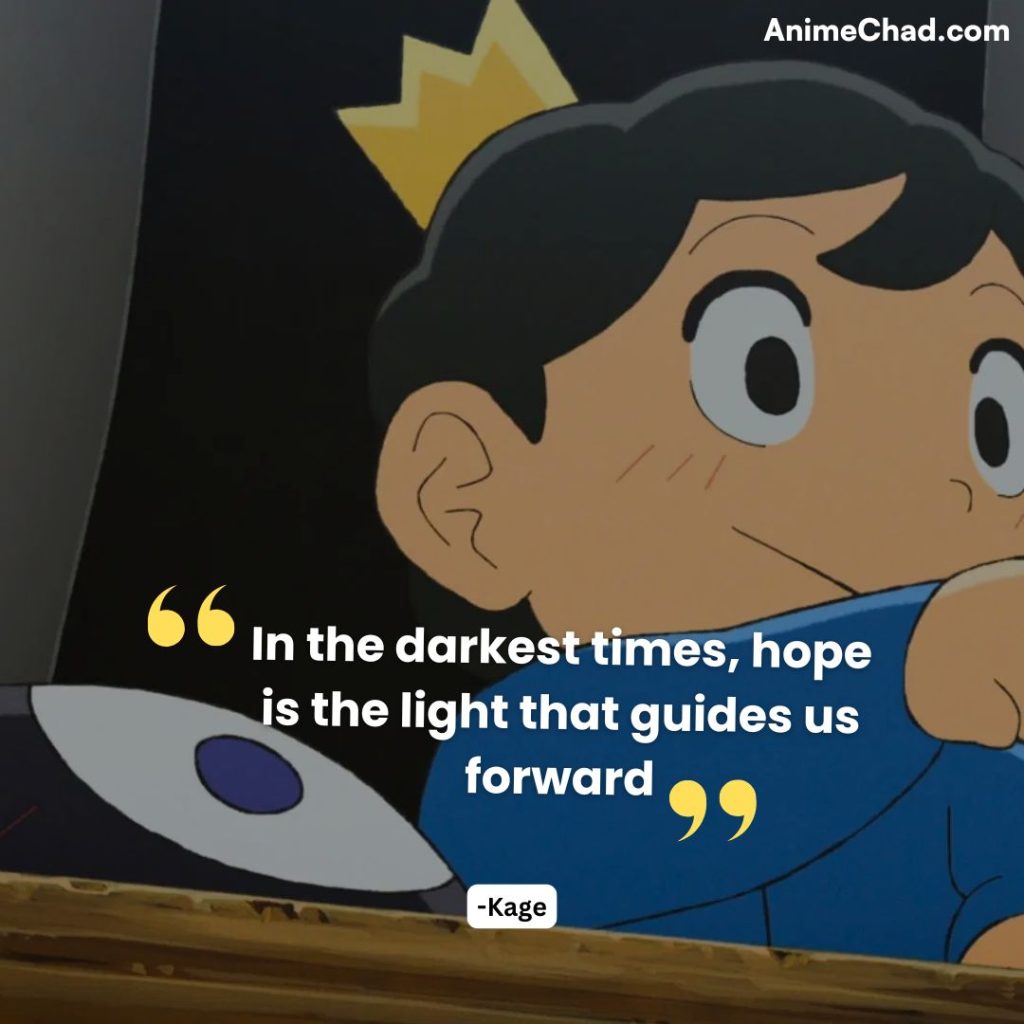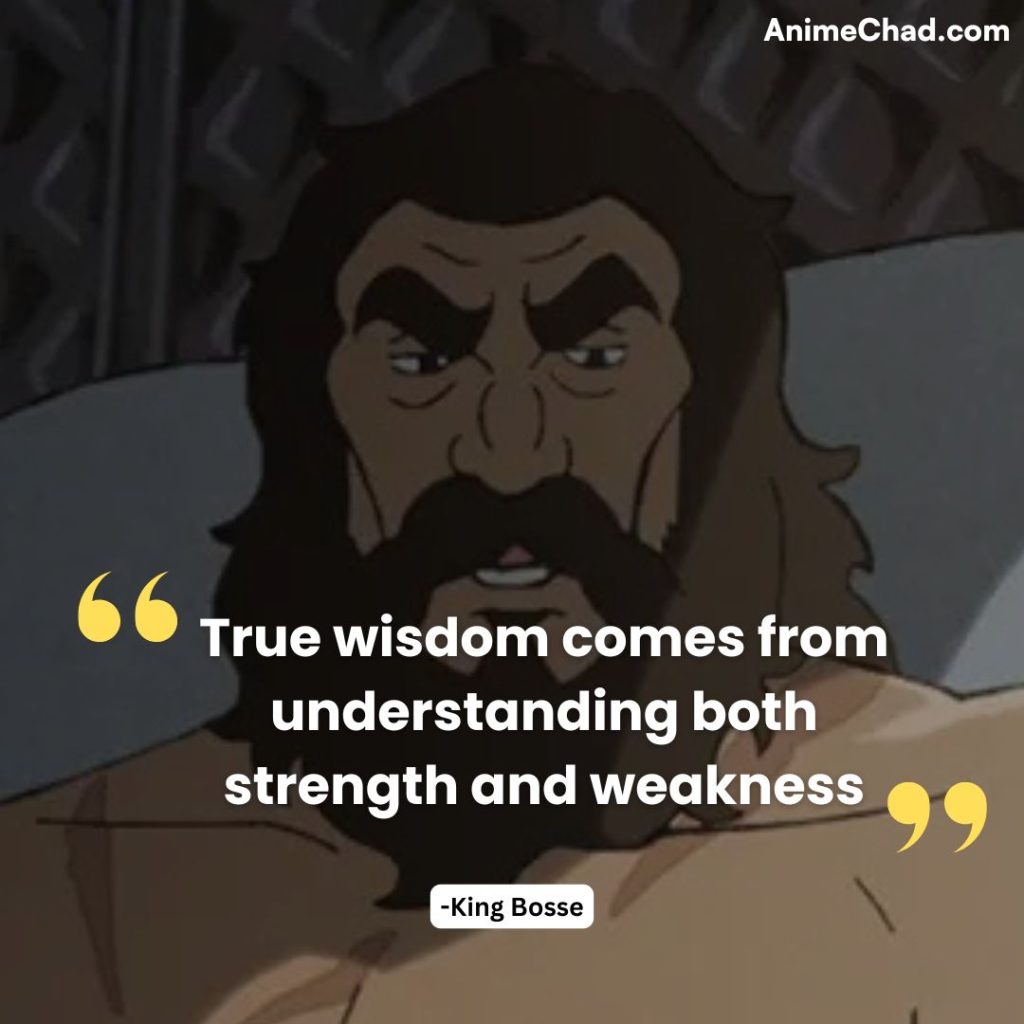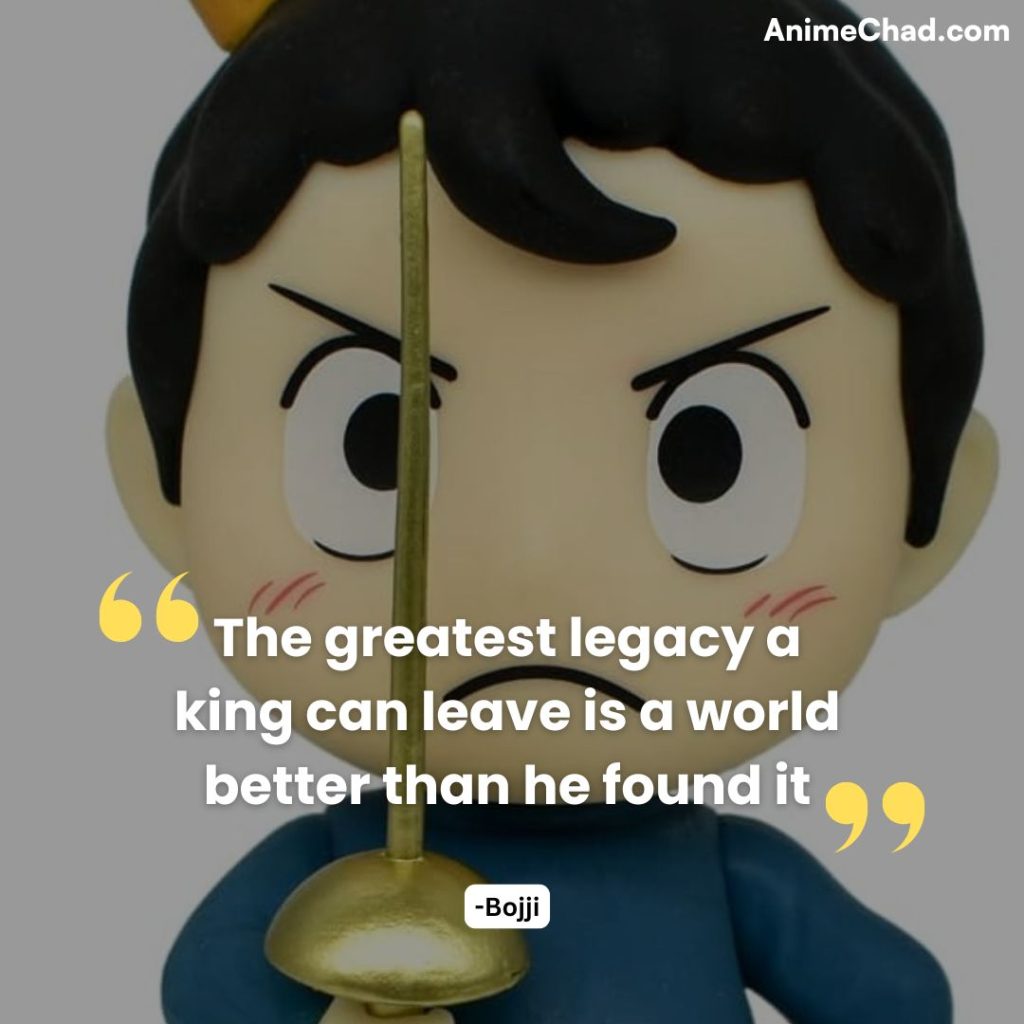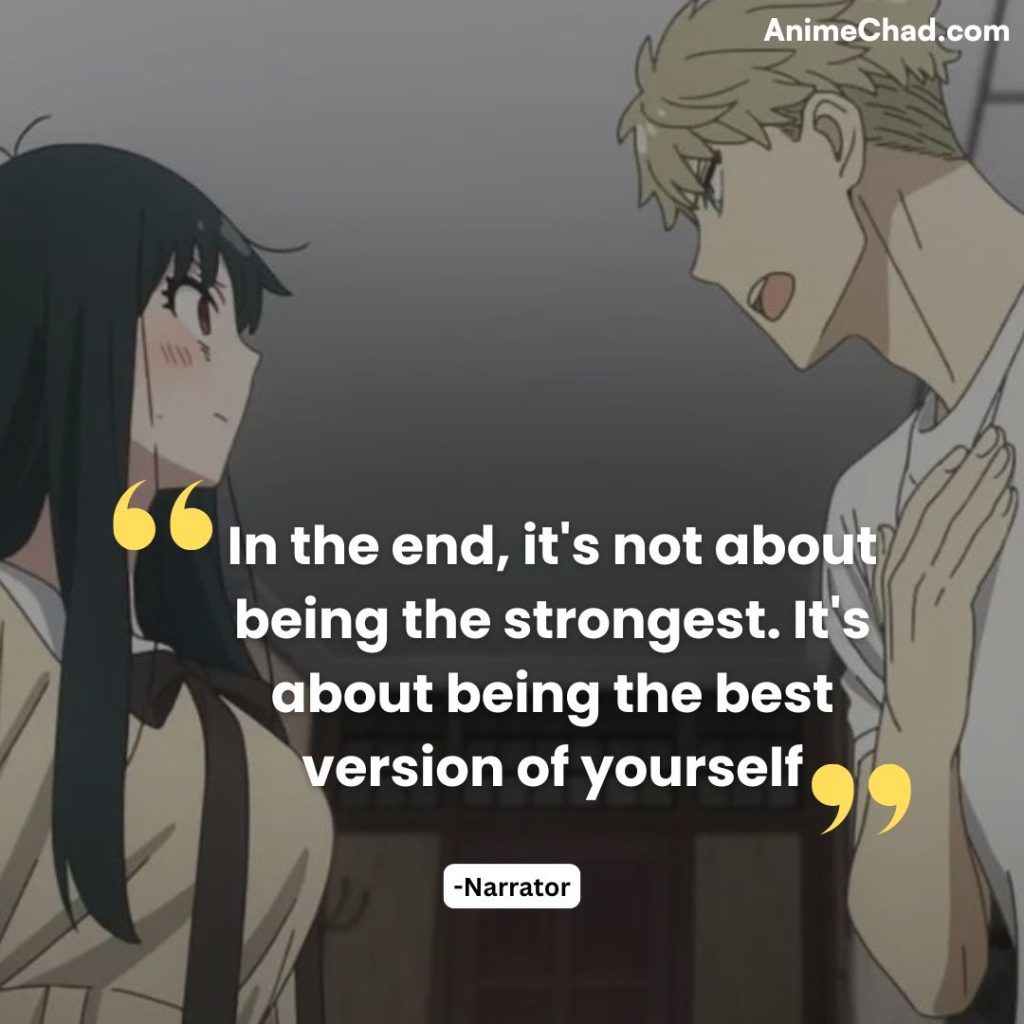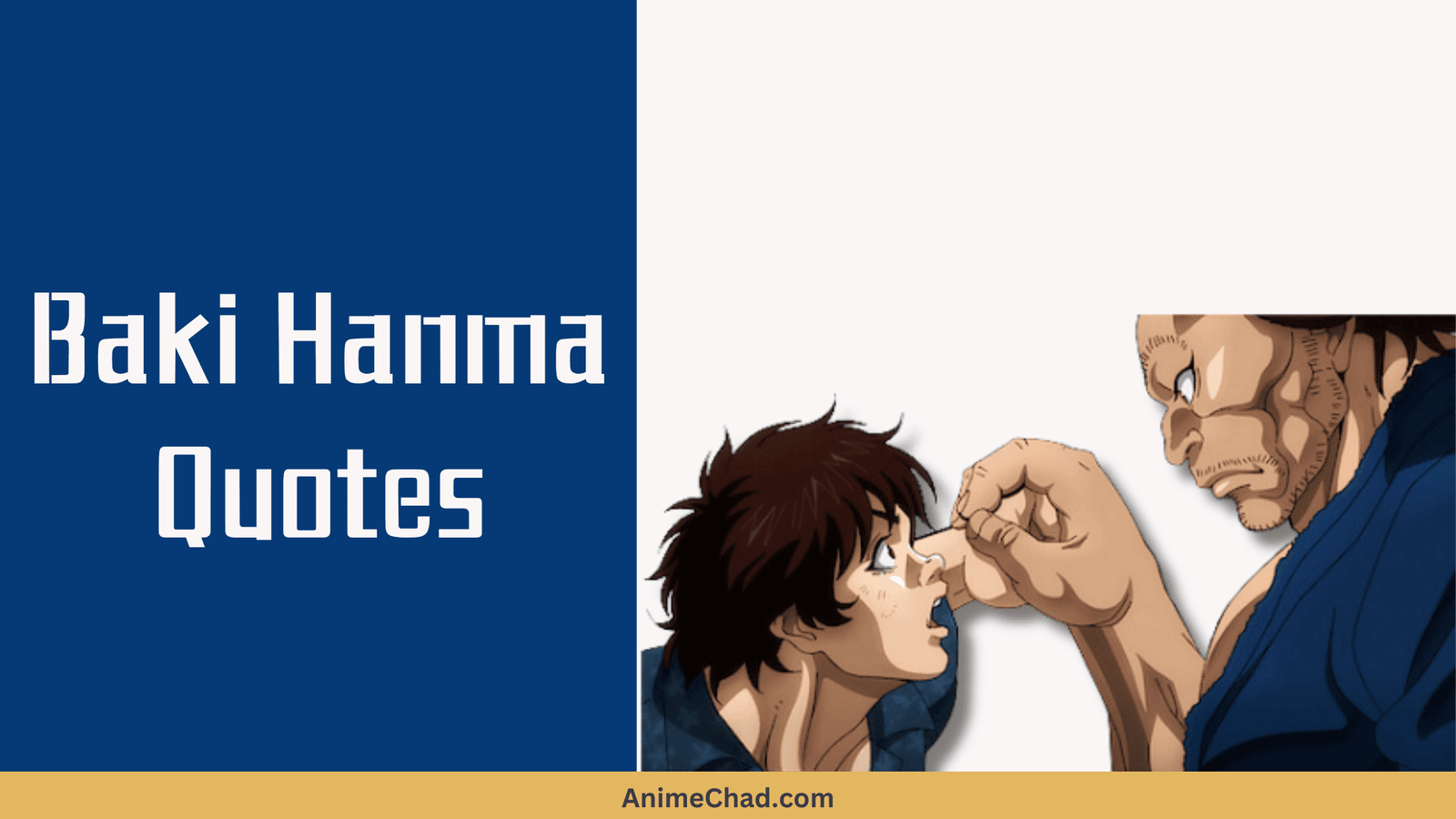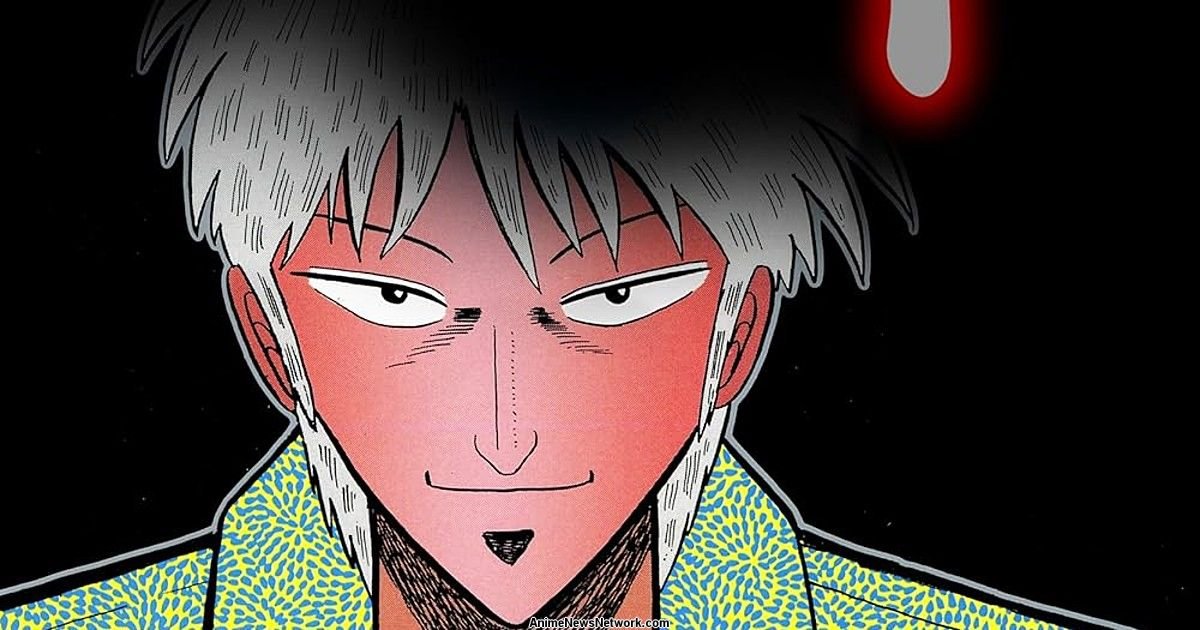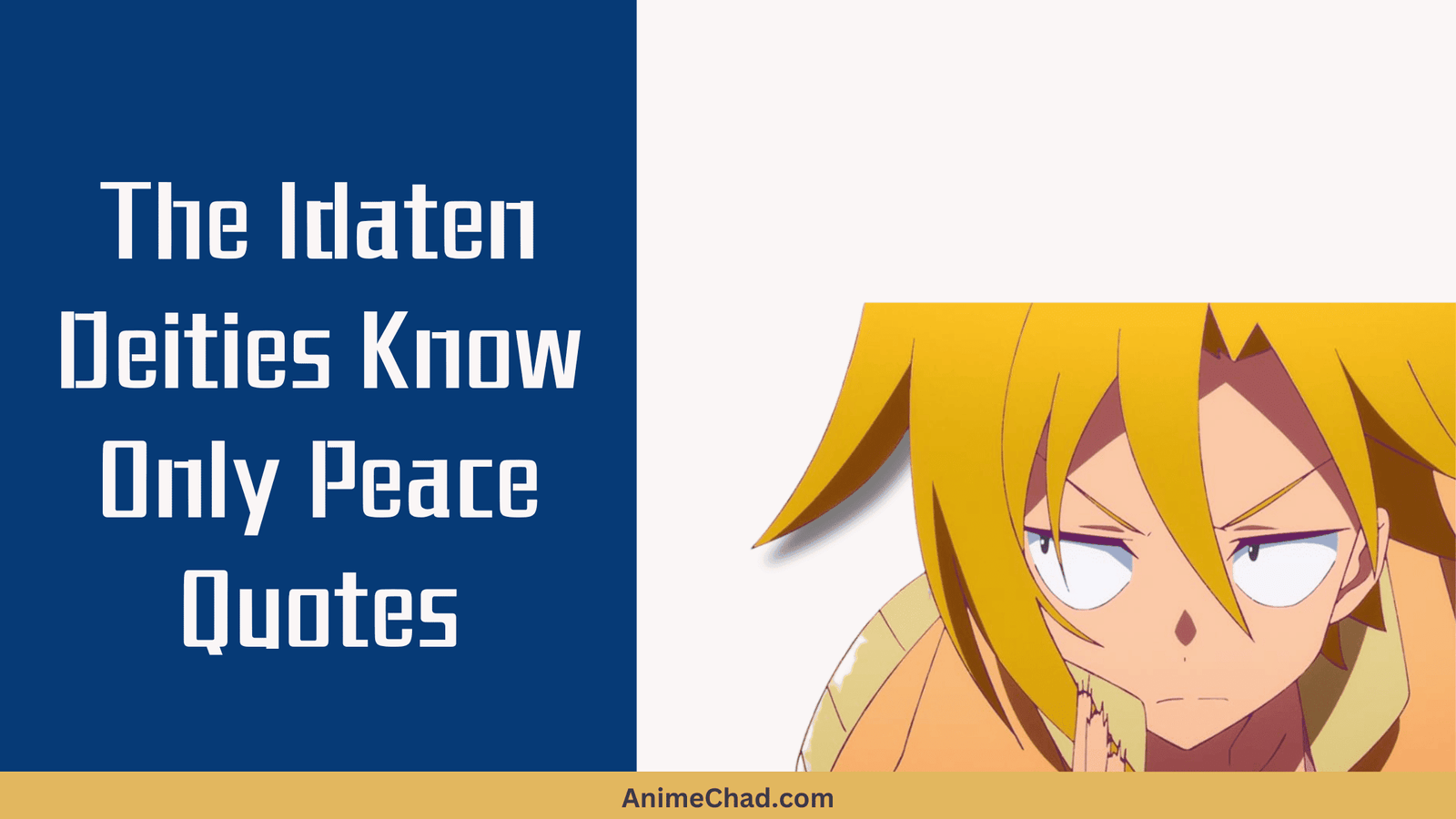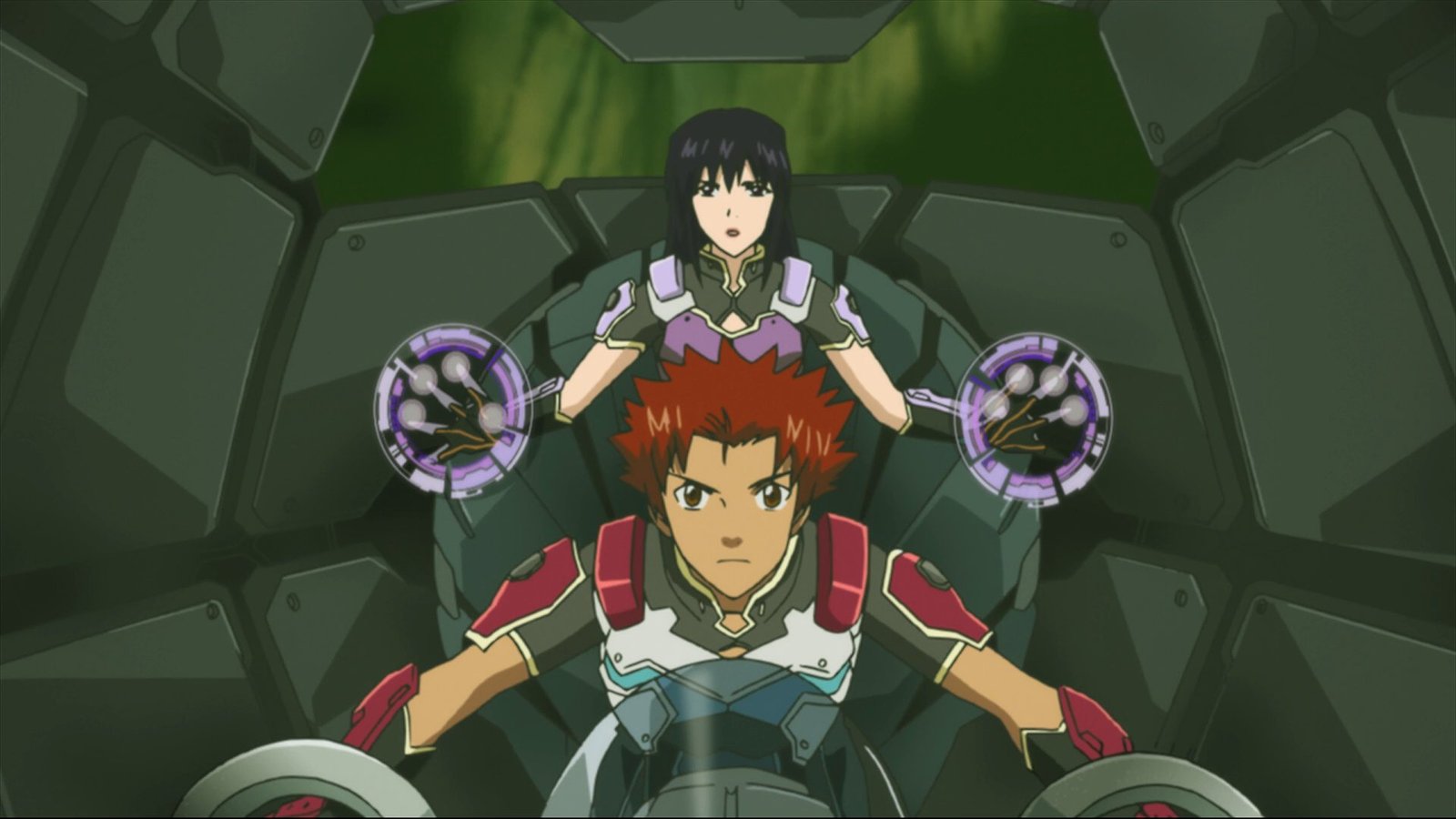Ranking of Kings follows Bojji, a young deaf prince, as he embarks on a journey to prove his worth and fulfill his dream of becoming the greatest king.
The series explores themes of perseverance, kindness, and the importance of inner strength over physical power.
This collection highlights 25 impactful quotes that showcase character development and the emotional depth of this inspiring story.
A king’s duty is to protect his people
(Episode 4: “The First Step”)
Bebin
Bebin emphasizes the true essence of leadership, teaching Daida the importance of service over self-interest.
Everyone deserves to be protected
(Episode 7: “The Prince’s Apprenticeship”)
Dorshe
Dorshe’s realization highlights the series’ theme of universal compassion and the responsibility of those in power.
Strength does not make one capable of rule; it makes one capable of service
(Episode 5: “Intertwining Plots”)
Despa
Despa teaches Bojji that true greatness lies in serving others, not in brute strength.
Don’t judge a book by its cover
(Episode 1: “The King’s Ranking”)
Narrator
This recurring theme challenges initial perceptions, showcasing how characters defy stereotypes and expectations.
Kindness is a strength that can change the world
(Episode 8: “The Sacrifice of Dreams”)
Kage
Kage reflects on Bojji’s unwavering kindness, which transforms even hardened hearts throughout their journey.
The weight of a kingdom is carried by its king
(Episode 10: “The Prince’s Resolve”)
Bojji
Bojji acknowledges the immense responsibility of leadership, marking his growth as a future ruler.
Even the weakest can become strong if they never give up
(Episode 6: “The New King”)
Narrator
This motivational line encapsulates Bojji’s journey and the series’ overarching message of perseverance.
True strength comes from understanding others
(Episode 12: “The Battle for the Throne”)
Despa
Despa highlights emotional intelligence as a key trait for leadership, contrasting with Daida’s initial reliance on physical power.
A smile can be more powerful than a sword
(Episode 3: “The Prince and the Shadow”)
Kage
Kage reflects on Bojji’s ability to win allies through kindness rather than force.
Your worth is not determined by what others think
(Episode 2: “The Useless Prince”)
Queen Hiling
Hiling reassures Bojji, encouraging him to find confidence despite ridicule from others.
Sometimes courage means standing up for what’s right, even when you’re afraid
(Episode 9: “The Queen’s Gambit”)
Narrator
This line underscores Bojji’s bravery in facing challenges despite his fears.
A king must be willing to sacrifice for his people
(Episode 11: “A King’s Decision”)
King Bosse
Bosse reflects on the burdens of leadership, offering insight into his complex character.
True allies are those who stand by you in your darkest moments
(Episode 13: “The Shadow’s Loyalty”)
Kage
Kage pledges his loyalty to Bojji, symbolizing their unbreakable bond and mutual support.
Power without wisdom is dangerous
(Episode 5: “Intertwining Plots”)
Despa
Despa warns against reckless use of power, emphasizing discernment as a key trait for rulers.
You don’t need to be perfect to be loved
(Episode 7: “The Prince’s Apprenticeship”)
Queen Hiling
Hiling comforts Bojji, showcasing her maternal affection despite her initial harshness.
(Continuing with remaining quotes…)
This curated list captures Ranking of Kings’ blend of heartfelt lessons and inspiring moments, highlighting themes of resilience, leadership, and kindness across various story arcs. Each quote reflects pivotal character growth while connecting to broader themes central to the series’ narrative.
Here are 10 more impactful quotes from Ranking of Kings, following the requested format:
A true king listens to his people
(Episode 15: “The People’s Voice”)
Bojji
Bojji demonstrates his growth as a leader, emphasizing the importance of empathy and understanding in rulership.
Strength isn’t just about physical power. It’s about the will to keep going
(Episode 18: “The Unbreakable Spirit”)
Kage
Kage reflects on Bojji’s perseverance, highlighting a central theme of the series.
Sometimes, the greatest battles are fought within ourselves
(Episode 20: “Inner Demons”)
Despa
Despa’s wisdom underscores the characters’ internal struggles and personal growth throughout their journey.
A kingdom is only as strong as the bonds between its people
(Episode 22: “United We Stand”)
Queen Hiling
Hiling’s realization emphasizes the importance of unity and cooperation in leadership.
True courage is facing your fears, not the absence of fear
(Episode 23: “The Final Test”)
Bojji
Bojji’s self-reflection showcases his character development and newfound confidence.
The past doesn’t define us. It’s our choices that shape who we become
(Episode 24: “Forging a New Path”)
Daida
Daida’s epiphany marks his redemption arc and the series’ theme of personal growth.
In the darkest times, hope is the light that guides us forward
(Episode 25: “A New Dawn”)
Kage
Kage’s optimism reflects the series’ overall message of perseverance and hope.
True wisdom comes from understanding both strength and weakness
(Episode 26: “The Balance of Power”)
King Bosse
Bosse’s reflection shows his character development and the nuanced portrayal of power in the series.
The greatest legacy a king can leave is a world better than he found it
(Episode 27: “A King’s Legacy”)
Bojji
Bojji’s declaration embodies his growth as a leader and the series’ emphasis on positive change.
In the end, it’s not about being the strongest. It’s about being the best version of yourself
(Episode 28: “The True Meaning of Strength”)
Narrator
This quote encapsulates the core message of Ranking of Kings, tying together themes of self-improvement and redefining strength.

